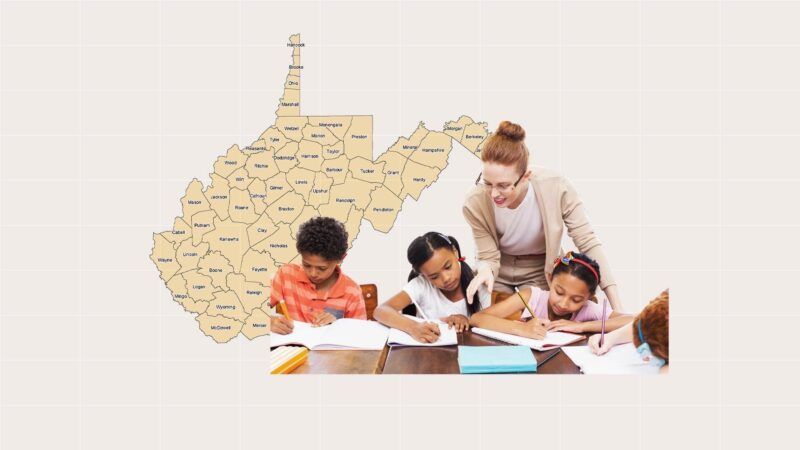A Lawsuit Threatens a Promising School Choice Law in West Virginia
The West Virginia Hope Scholarship lets parents use their kids' per-pupil funding wherever and however works best for them.

A West Virginia law gives students the possibility of opting out of the state's public school system. A lawsuit filed last week threatens to make them stay right where they are.
Passed last year, H.B. 2013 established West Virginia's Hope Scholarship Program, which funds education savings accounts (ESAs) for students currently enrolled in the state's public schools. Similar to health savings accounts, ESA programs provide money directly to parents, typically from the state's education budget, which can be used on education-related expenses. West Virginia's program is open to all students enrolled in the state's public school system, who can apply for inclusion for the 2022-2023 school year. If accepted, students are exempted from public school attendance and get a stipend equal to the average amount that the state would otherwise spend on their education, which is currently about $4,600. That money can be used for such expenses as tuition at a different school, tutoring, or speech therapy. If a parent would rather homeschool their child, the funds could even be used for homeschooling curriculum.
But last week, three West Virginia parents, one of whom is also a teacher, sued to prevent the new law from going into effect. The parents are being represented "in partnership with" Public Funds Public Schools, a public school advocacy group founded in part by the Southern Poverty Law Center. The lawsuit argues that the program violates West Virginia's constitution, which guarantees a "thorough and efficient system of free schools." It further alleges that the law will "siphon millions of dollars of public money away from public education."
On Friday, the Institute for Justice (IJ), a libertarian public interest law firm that frequently litigates on behalf of school choice, filed a motion to intervene. In the filing, IJ asked to defend the law on behalf of two West Virginia parents who hoped to take advantage of the program. And as IJ's filing makes clear, the lawsuit gets the facts wrong.
The Hope Scholarship would not deprive public schools of funds because the funds are apportioned entirely separately. In other words, in the state's annual budget, the Department of Education requests funding for public schools based on how many students are enrolled; under the new law, the department would request an additional amount just for the Hope Scholarship participants. Funding for Hope Scholarships would not take money away from public education any more than any other state government funded program would, simply by being listed on the state budget.
The three parents who hope to stop the program all have children who, for various reasons, require extra individualized attention in school. They are happy with the programs their public schools offer, and there are no private schools close enough to them that could serve the same needs. But what this complaint seems to misunderstand about school choice is that it is a choice. Under the Hope Scholarship program, none of the plaintiffs' children would have to do a single thing differently: They could continue to go to the same schools and benefit from the same programs.
On the other hand, IJ's clients—a mother with four children and another with two—do not have the luxury of a public school which meets their children's various needs. They hope to benefit from the law by being able to afford extra therapies, or help with tuition at a private school with smaller class sizes.
If the law is allowed to go forward, these two mothers will have an entire range of options available to them, which they can tailor to fit their children's exact needs. And for the parents who are suing, nothing would have to change.
Show Comments (6)